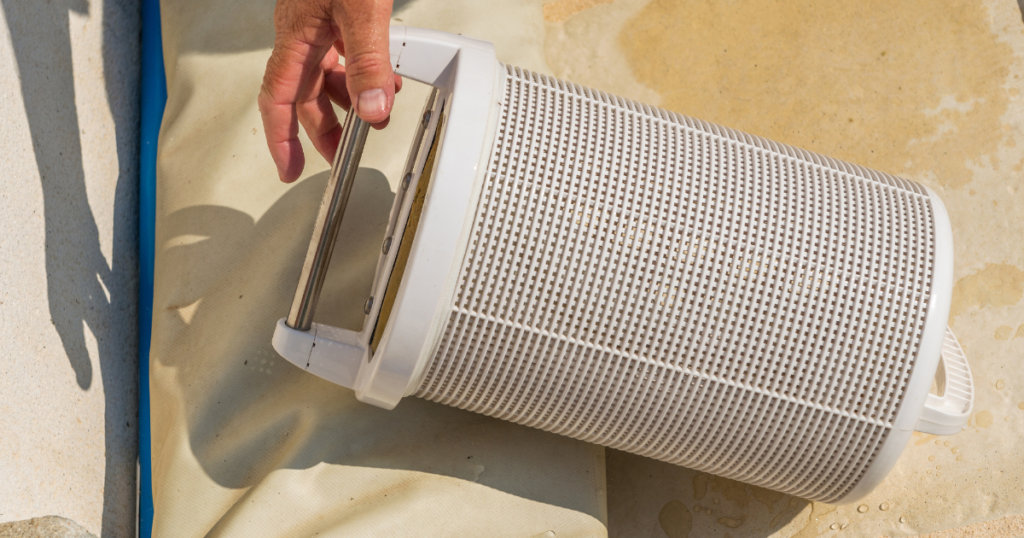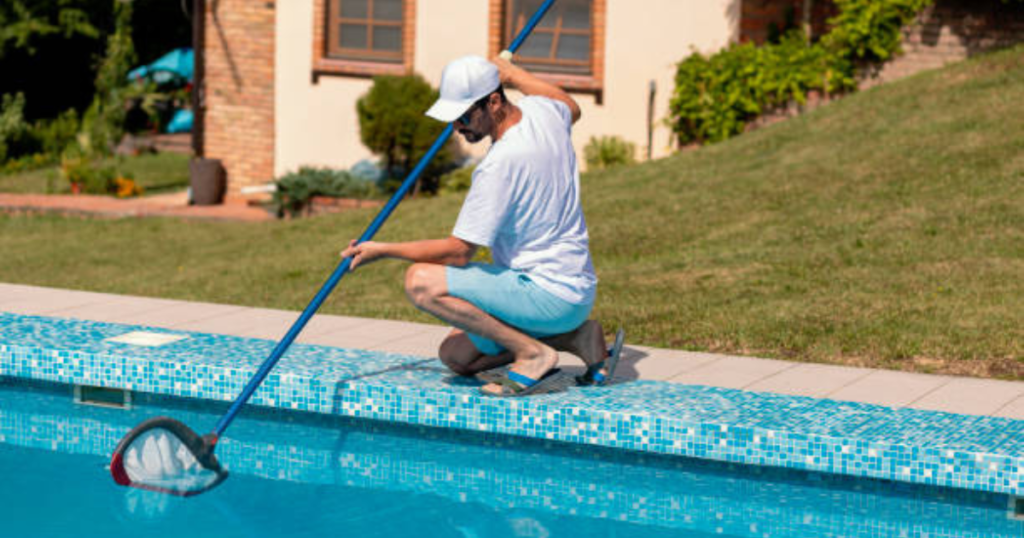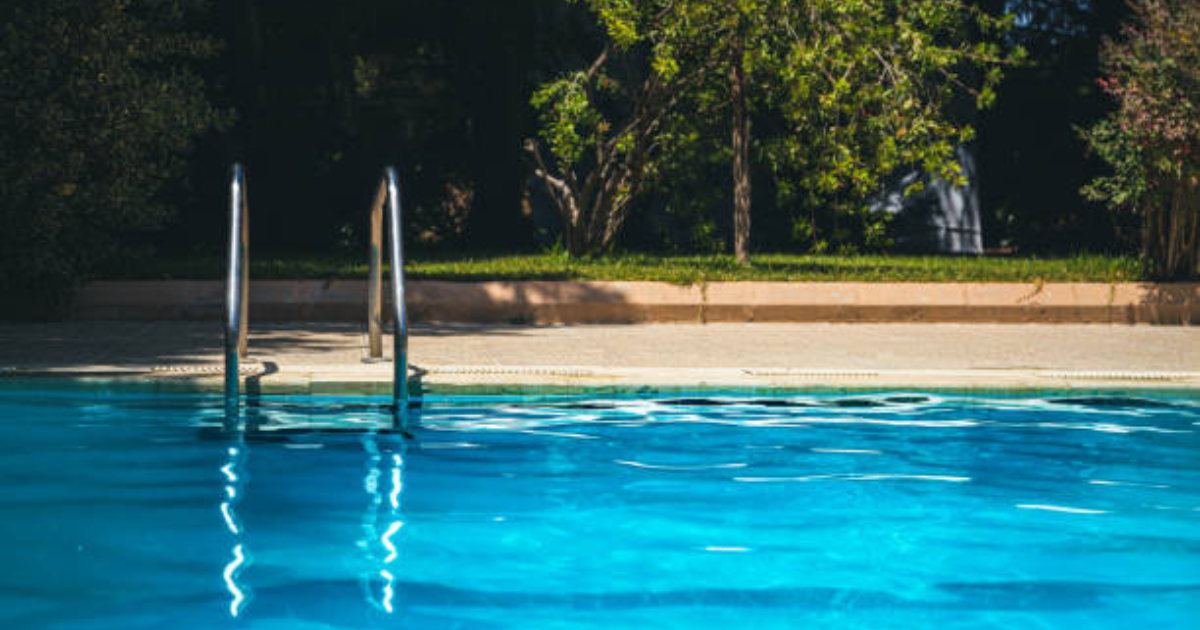Pool filters play a crucial role in maintaining a clean and safe swimming environment. When choosing the right pool filter for chlorine and saltwater pools, there are several factors to consider, including the type of pool, the desired level of filtration, and the cost. Here are some key points to keep in mind when selecting a pool filter for your specific pool setup.
Diatomaceous Earth (DE) Filters
Diatomaceous earth (DE) filters use a natural sedimentary rock that crumbles into a fine powder to trap impurities. They are known for their high filtration efficiency, making them suitable for both in-ground and above-ground pools. However, DE filters typically require more frequent replacement of the DE powder and have higher upfront costs compared to other filter types.
Sand Filters
Sand filters employ a large tank filled with sand, which acts as a medium to trap debris as water passes through. They are generally considered to be durable, easy to operate, and low maintenance, with filter sand needing replacement every three to five years. However, sand filters may offer a different level of filtration than DE or cartridge filters and may require additional filter media or clarifiers for optimal performance.
Cartridge Filters
Cartridge filters feature one or more cylindrical filters made of pleated paper-like material that allows water to pass through while capturing impurities. They are known for their energy efficiency, ease of replacement, and minimal water consumption, as they do not require backwashing. Cartridge filters are commonly used in both in-ground and above-ground pools and are considered a middle ground between sand and DE filters in terms of filtration ability and cost.
Ultimately, the choice of pool filter depends on your specific needs and preferences. Factors to consider include the size and type of pool, the amount of time you want to spend on maintenance, and your budget. Consulting with a pool professional can help you determine the most appropriate filter for your unique situation.
Choose the Right Pool Filter for Your Pool
By understanding the different types of pool filters available, their respective maintenance requirements, and the average price for pool filter replacement, you can make an informed decision about which filter is best suited for your chlorine or saltwater pool setup. Regular cleaning and maintenance will help ensure that your pool remains safe and enjoyable for years to come.

Pool Filter Cleaning Tips
Regardless of the type of pool filter you choose, regular cleaning is essential for maintaining optimal performance. Here are some general tips for cleaning pool filters:
- Sand filters: For sand filters, backwash the filter periodically to remove trapped debris and restore filtration efficiency.
- DE filters: To clean DE filters, follow the manufacturer’s instructions for adding new DE powder and running the pump to distribute it evenly over the filter grids or fingers.
- Cartridge filters: Soak cartridge filters in a 50/50 mixture of water and white distilled vinegar for at least 3 hours, or overnight if heavily soiled. Rinse the cartridges thoroughly before reinstalling them into the filter housing.
Length of Pool Filter Life and Ways to Extend It
The lifespan of pool filters varies depending on the type of filter and the frequency of maintenance. Generally speaking, here are the estimated lengths of filter life based on the type:
- Sand filters: Last approximately 5 to 8 years, but the sand inside needs to be changed every 3 to 5 years for optimal filtration.
- Cartridge filters: Typically last between 2 and 4 years, depending on quality and usage frequency.
- DE filters: Can last up to 10 years with proper maintenance, including regular cleaning and replacement of DE powder.
To extend the lifespan of your pool filter and save money on replacements, consider these tips:
Regular cleaning
Regularly clean your pool filter by removing debris and hosing it down. This helps remove dirt and prevents clogging that causes reduced filter efficiency.

Proper Chemistry Balance
Maintain proper water chemistry by testing and balancing pH levels, chlorine levels, and other chemicals in your pool. This ensures a healthy environment for your filter media.
Backwashing
Follow the manufacturer’s instructions for backwashing your pool filter to remove trapped debris and restore optimal flow. For example, sand filters should be backwashed at least once per month.
Inspect Your Filter
Regularly inspect your filter for signs of damage, such as tears, fraying, or flattened pleats. Address any issues promptly to prevent bigger problems and extend the filter’s lifespan.
Skimmer Maintenance
Keep your skimmers clean to prevent debris from clogging the filter. Clogged filters reduce filtration efficiency and cause damage.
By following these tips, you can maintain your pool filter effectively and potentially extend its lifespan beyond the estimated timeframe.
Overall, selecting and maintaining a clean pool filter is key for crystal-clear water, but the effectiveness is related to which type of pool filter system you have and your maintenance routine. While cleaning frequency depends on usage and filter type (cartridge or sand), both chlorine and saltwater pools benefit from regular cleaning every few weeks. However, cartridge filters need replacing every 2-4 years, and sand media needs to be refreshed every 7-10 years. Watch for pressure gauge readings and general wear-and-tear to know when it’s time to swap out your filter entirely. Remember, proper pool maintenance, like shocking, can extend your filter’s lifespan. By following these tips, you can ensure your filter keeps your pool sparkling for years to come.
Other Frequently Asked Questions
What is the easiest pool filter to maintain?
Sand filters are easy to maintain. To clean the debris out of the sand you use a method called ‘backwashing’ and it’s easy to do. However, it can reduce the water level. The sand only requires replacing every 5-8 years.
What will ruin a pool filter?
Petroleum-based products can eventually destroy both your o-rings and filter and therefore should never be used. Instead, use lubricants made out of either silicon or Teflon.
Do cartridge filters need to be backwashed?
No, cartridge filters aren’t designed to be backwashed. Unlike sand filters, there’s no reverse water flow function (or backwash line) with cartridge filters, so they must be cleaned manually.
What are the disadvantages of sand filters?
One main disadvantage of sand filtration is the rinse water that is created when the sand filter is cleaned. This heavily polluted water must be treated and disposed of appropriately. To limit the load on the filter, a preliminary sedimentation step can be implemented for heavily loaded wastewater.

